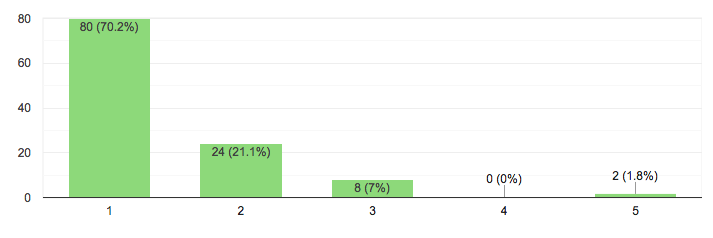Programme Details
The whole symposium was a 2-day event and was divided into 5 sessions: one Inaugural and four Technical sessions (Day1 and Day 2). The Technical sessions consisted of talks of 45 mins each (35 mins talk, 10 mins Q&A session) and were moderated by a Session Chair.
Day 1: August 10,2020
Inaugural Session
In the inaugural session, Prof. Sharad Soni (International Collaboration Unit, JNU) talked about how SPARC started and how it helped researchers gain more international collaborations and how the research community in India is getting benefited from it. Prof Shandar Ahmad talked about the proportions of participants from different levels of their career and shared his experiences on the collaborations under SPARC. He further gave an introduction to his lab and talked about the works being carried out by different research area-based subgroups in his own lab. Prof. Nicoletta Bobola introduced the works going on in her lab and the problems they are trying to find an answer to. Prof. Rakesh Bhatnagar gave an introduction to work carried out on infectious diseases in his lab. He also talked about his experience from different research collaborations and how those have helped solve problems associated with the treatment of a few infectious diseases they have worked on as a motivation to young researchers to discuss and collaborate more with the research community. Prof. Rupesh Chaturvedi gave an introduction to his lab; the projects and the areas of host-microbe interactions his lab is working on and the results they have obtained. Finally, the inaugural address was given by the chief guest of the event- Prof. M Jagdesh Kumar (Vice Chancellor, JNU, Delhi). He shared his views as a simplified version on how scientific research should be approached and motivated the young researchers and students to actively involve themselves in the scientific research, with enthusiasm and hard work. At the end of the inaugural session, Prof. Shandar Ahmad thanked the speakers and started the Technical Session I as its session chair.
Technical Session I
Session Chair: Prof. Shandar Ahmad
Lecture 1: Human embryonic development/organogenesis by Prof Nicoletta Bobola
Lecture 2: Rewiring of Transcriptional Regulators in the Human Fungal Pathogen Candida albicans by Prof Krishnamurthy Natarajan (School of Life Sciences, JNU)
Technical Session II
Session Chair: Prof K Natarajan
Lecture 3: Retinoic acid signaling regulates morphogenesis of the developing forebrain roof plate by Prof. Jonaki Sen (Dept of Biological science and Bioengineering, Indian Institute of Technology, Kanpur)
Lecture 4: Transcriptional control and effects of mutations in regulatory elements during development by Araceli Garcia Mora (The University of Manchester, UK)
Lecture 5: Sequence, structure and conformational dynamics signatures in genome wide regulatory programs of transcription factors by Prof. Shandar Ahmad.
Day 2- August 11, 2020
Technical Session III
Session Chair: Prof. Mukesh Jain (SCIS, JNU)
Lecture 6: Patterning and morphogenesis/ molecular control by Prof Nicoletta Bobola
Lecture 7: Sequence and structural variations in slow and fast transcription factor binding sites by Manisha Kalsan (SCIS, JNU)
Lecture 8: Transcriptional signature modulating plant architectural traits enhances chickpea yield by Dr Swarup K Parida (Staff Scientist IV, National Institute of Plant Genomics Research, Delhi)
Technical Session IV
Session Chair: Dr R K Brojen Singh (Associate Professor, SCIS, JNU)
Lecture 9: Unified representation of single cells states with pathways and its utility for developmental biology and stem cell studies by Dr Vibhor Kumar (Assistant Professor, Indraprastha Institute of Information Technology, New Delhi)
Lecture 10: Identifying diversity in transcriptional regulation from high-throughput experiments by Dr Leelavati Narlikar (National Chemical Laboratory, Pune)
Lecture 11: Genomics and Molecular genetics approaches to study Transcription Factor function by Dr Arnab Mukhopadhyay (Staff Scientist VI, National Institute of Immunology, New Delhi)
We thank all the speakers for accepting to be a part of this event and for sharing their interesting and quality research work with the audience. We thank all the participants for joining the event and listening to the talks patiently and helping us manage everything without issues.
Feedback from participants:
Participants were given a questionnaire to fill out and the following is the summary of responses received. We thank all those who participated in this feedback and will do our best to improve our efforts in the future.
Feedback question 1: Please give your opinion on the overall quality of the presentations in this SPARC symposium (1 for excellent, 5 for poor).
Responses:

Feedback question 2: How would you rate the overall contents of the program (1 for simple and trivial, 5 for specialized and technical)?
Responses:

Feedback question 3: How satisfied are you with the symposium (1 for highly satisfied, 5 for not satisfied)?
Responses:

Feedback question 4: How do you rate the communication experience with the symposium before the event started (e.g. ease of registration and access of platform) (1 for excellent, 5 for poor)?
Responses:
